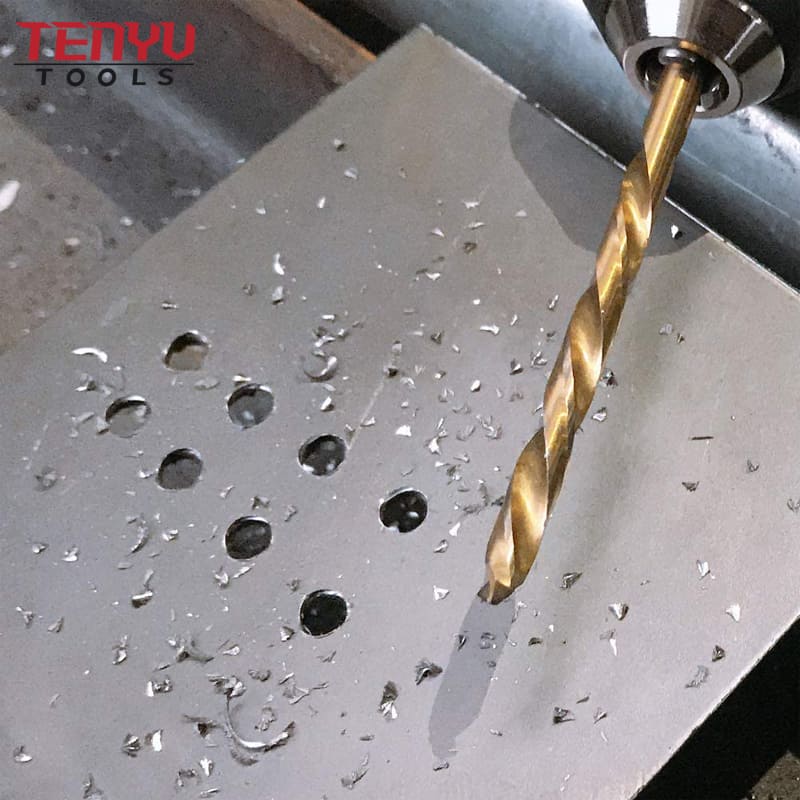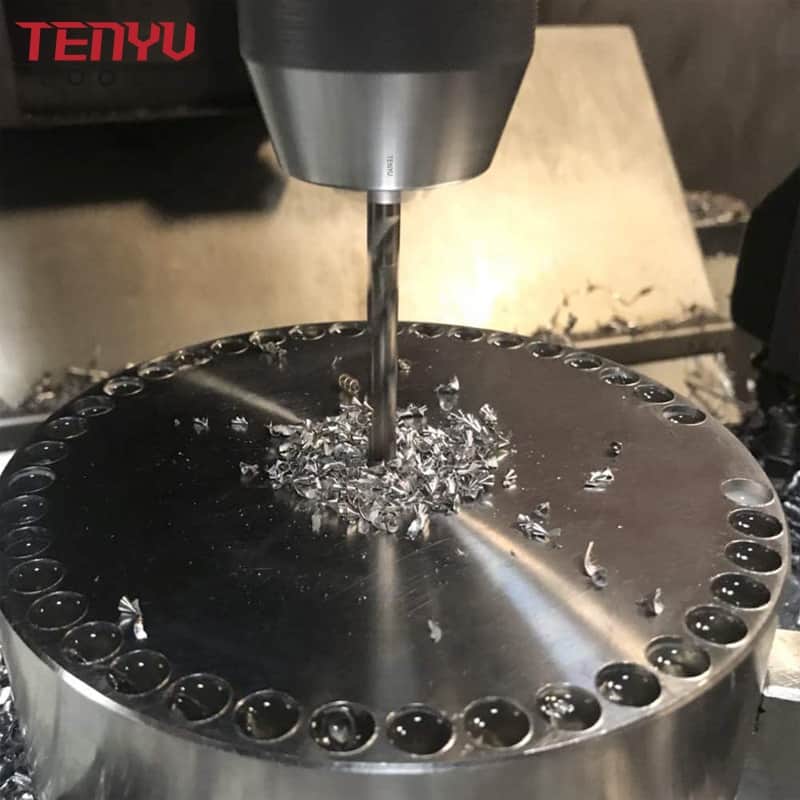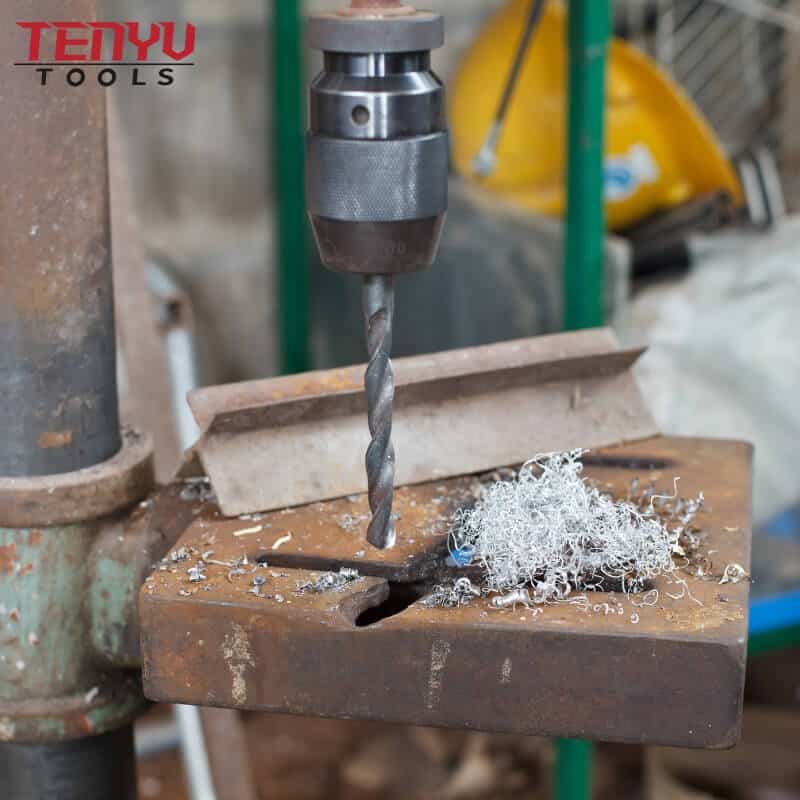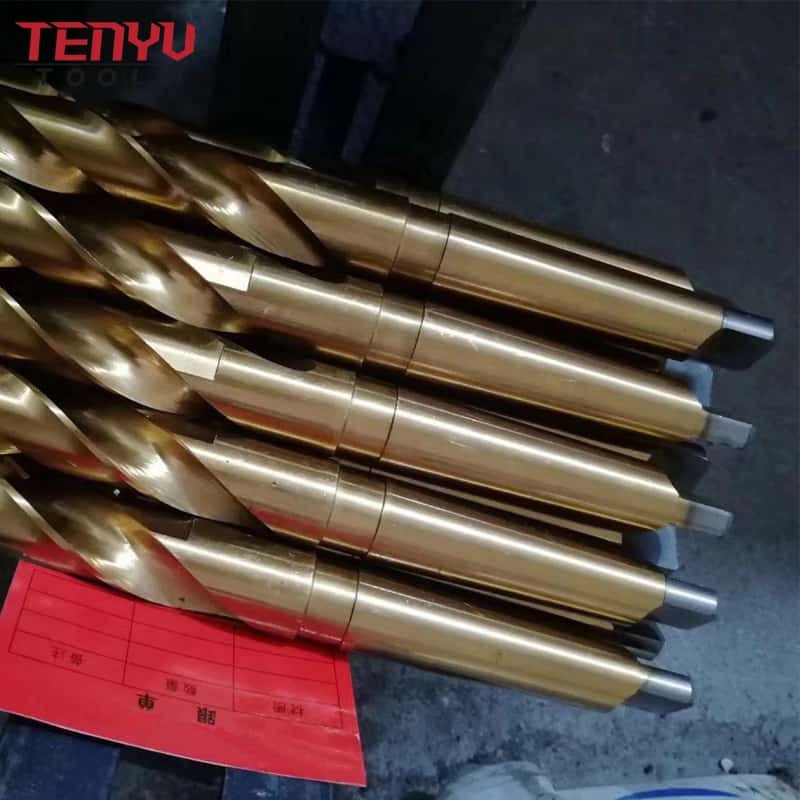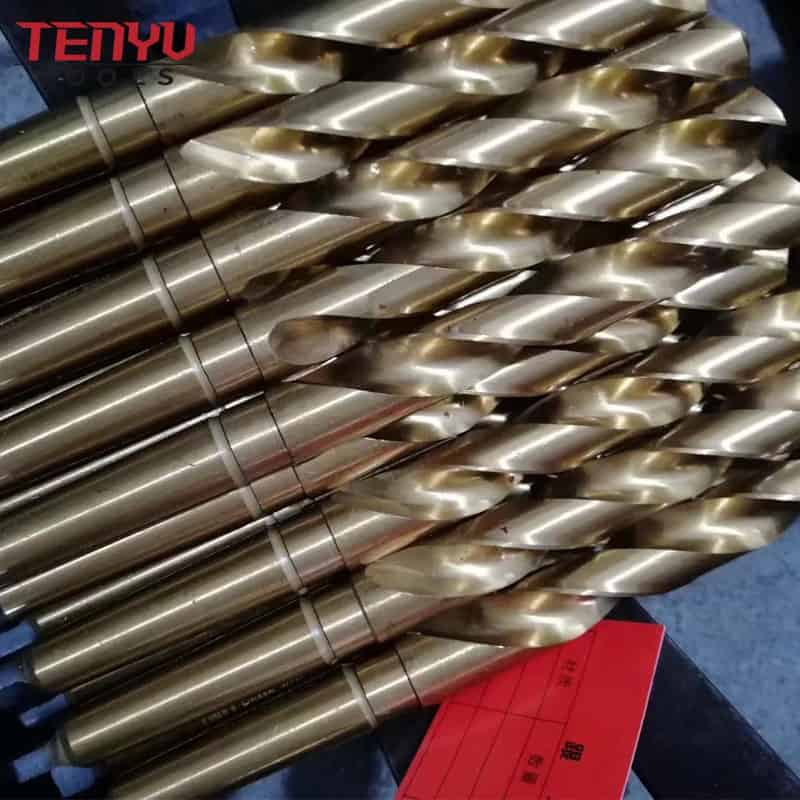There is a big difference between taper shank drill bits and straight shank drill bits
HSS straight shank twist drill bits are the most widely use hole processing tool
Usually, the diameter ranges from 0.25 to 80 mm
It mainly consists of a working part and a handle, the working part has two spiral grooves, which look like twists, hence the name
[toc]
The Hss Twist Drill Bits Can be Divided Into Three Parts According to Its Function
- The part of the shank drill bit for clamping and used to transmit the power required for drilling
- Drill neck The transition part between the cutter body and the drill shank. Usually use as an empty sipe for grinding wheel retraction
- Drill body Working part of the drill. It consists of a cutting part (that is, a drill tip) and a guide part
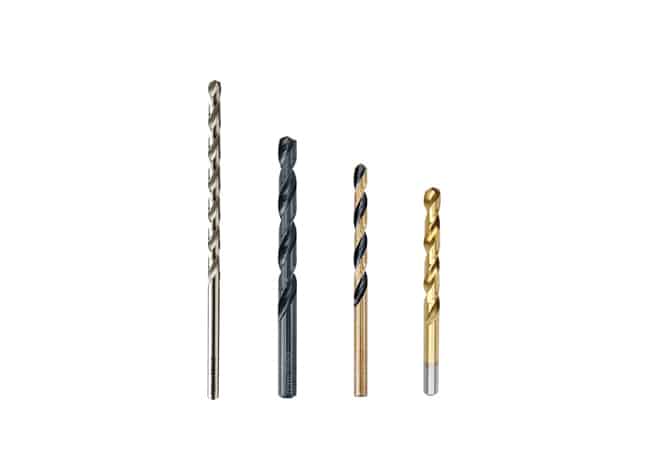
The HSS Taper Shank Twist Drill Bit has Two Spiral Grooves, Which are Named After Twists
Unlike the kind above, the taper shank twist drill is tapered
Taper drills bits of different specifications have different Morse tapers
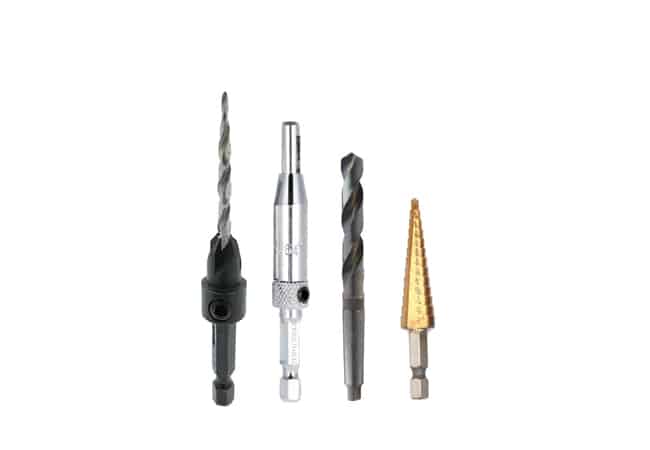
Difference Between Straight Shank Twist Drill Bit and Taper Shank Twist Drill Bit
Generally, those with a diameter of 13 mm or more use a twist drill with a tapered shank and those with a straight shank use the following
The main consideration is to facilitate the clamping and to have sufficient clamping force. It is obviously not cost-effective to make a small drill into a cone, so it is made into a straight shank
Both types of drills equipped with radial drills must be available
Require another set of Morse drill sleeves and one drill chuck with No. 3 Mohs drill sleeve. The chuck can be 0-13 or 2-16
If you cannot drill holes below 1 mm, compare with 2-16 drill chucks
Countersink chucks must have a special wrench, and a Morse taper sleeve must be equipped with a cone iron, but this thing is generally self-made
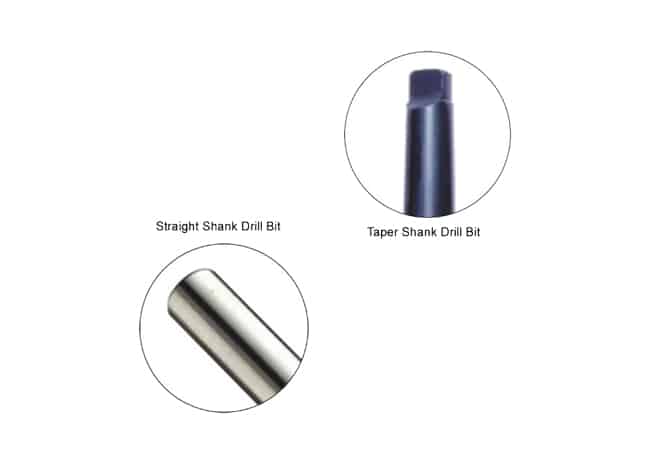
The straight shank twist drill bit is one of the most widely made use of hole drilling tool. It is mostly composed of the working part and also handle. Generally, the diameter varies from 0.1 to 120 mm.
The Twist Drill Bits can be Divided Right into Three Parts:
1. Shank: Hss twist drill bits shank for clamping, and made use of to transmit the power required for drilling.
2. Neck Part: Hss twist drill bits neck is located at the transition between the cutter body and the hss twist drill bits shank.
3. Working Part: It consists of the cutting component and the guiding part.
Hss Drill Bits have 2 Kinds of Shank
Straight shank and also tapered shank.
Hss Twist Drill Bits Material and Angle
Hss twist drill bits are made of high speed steel (Hss4241, Hss4341, M2, M35, M42). Taper shank twist drill bits are commonly made use of as cutting tools for hole handling and also are extensively made use of in the processing of finished and semi-finished holes. Hss straight shank twist drill bits are used for processing tool parts.
Throughout making use of, the straight shank hss drill bit is clamped in the drill chuck and the taper shank drill bit is inserted in the taper hole of the machine tool spindle or tailstock.
In order to decrease the friction in between the guide component and also the hole wall during drilling, the straight shank twist drill bit progressively decreases in size from the drill tip to the shank to create an inverted cone shape.
The helix angle of the straight shank twist drill bit mainly impacts the size of the rake angle on the cutting edge, the strength of the blade and the chip removal performance, usually 25 ° ~ 32 °.
Spiral flute could be processed by milling, grinding, hot rolling or hot extrusion, and the front end of the hss twist drill bit is sharpened to create a cutting component.
The leading angle of the cutting part of the common straight shank twist drill bit is 118, the chisel edge bevel angle is 40 ° -60 °, and also the relief angle is 8 ° -20 °.
Hss Twist Drill Bits Drilling Notice
1. When drilling iron or various other materials, please ensure adequate metal cutting fluid.
2. The good flexibility and also hardness of shank and the size of Flute twist can improve the precision of drilling and also the life of the hss twist drill bit.
3. Please ensure the leveling and cleaning between the processed components and the non-processed parts.
4. When drilling thin plates, strengthen the workpiece, and when drilling large workpieces, please make sure the stability of the workpiece.
5. At the beginning and end of drilling, the feed rate need to be reduced by 1/3.
6. For materials with a large quantity of fine powder throughout drilling, like cast iron, cast copper, etc, you can use compressed air to help chip removal without making use of coolant.
7. Please remove the iron filings wound on the drill body in time to guarantee smooth chip removal.
Drill Bit Installation of Taper Shank Twist Drill Bit
Slowly lift the drill box, put the 4 legs of the drill box right into the four holes of the drill turntable, pick the matching drill box core plate according to the specifications of the drill bit, and also lift the drill box core plate right into the drill box body.
The set up bit groove corresponds to the protruding tip of the core plate of the bit box. Place the bit in the bit box and also the bit will certainly be clamped in the center of the turntable. After that screw on the drill bit connecting nut drill rod in turn.
1. Determining the feed rate: The feed rate is typically based upon experience. From a mathematical viewpoint, it is normally 0.08-0.12 mm/revolution, or 0.6-1.0 mm/sec. The feed rate is a crucial element when drilling, and also it is different. The feed rate can create various iron filings, and also different iron filings will certainly transform the chip removal performance.
2. Positioning: Chisel a positioning point in the center of the position to be pierced or mark a “cross” line with an alloy needle to make sure the precision of the drilled place. Keep in mind that when using the center chisel to hit the positioning place, please ensure that the center chisel is vertical to the surface of the workpiece, so as not to affect the smooth discharge of the cutting core.
3. Begin drilling: Please change the appropriate speed. Please make sure the bottom of the drill magnetic base is tidy before starting. Turn on the magnetic base button and then the motor switch. When the electric motor is running, turn on the coolant button. When the drill bit touches the steel plate, feed slowly. After drilling around 1-2mm, feed at normal speed.
4. End of drilling: Turn off the motor and also wait on the spindle to determine the feed rate: The feed rate is generally based upon experience, and the value is typically 0.08-0.12 mm/revolution, or 0.6-1.0 mm/sec. The feed rate is during drilling. The more critical component in the hole, different feed rates can form different iron filings, and different iron filings will transform the efficiency of chip removal.
The Distinction Between Straight Shank Twist Drill Bit and Tapered Shank Twist Drill Bit
Straight shank twist drill bits and also taper shank drill bits are all called hss twist drill bits. Normally more than 6.5 mm in diameter with a taper shank, diameter below 6.5 mm with a straight handle.
Mainly to consider the convenience of clamping and have enough clamping force. Little hss twist drill bit made of the cone is obviously not beneficial, so made straight handle.
The above is a description of the difference between straight shank twist drill bits and taper shank twist drill bits
If you want to know more about the drill bits and saw blade, click here!
